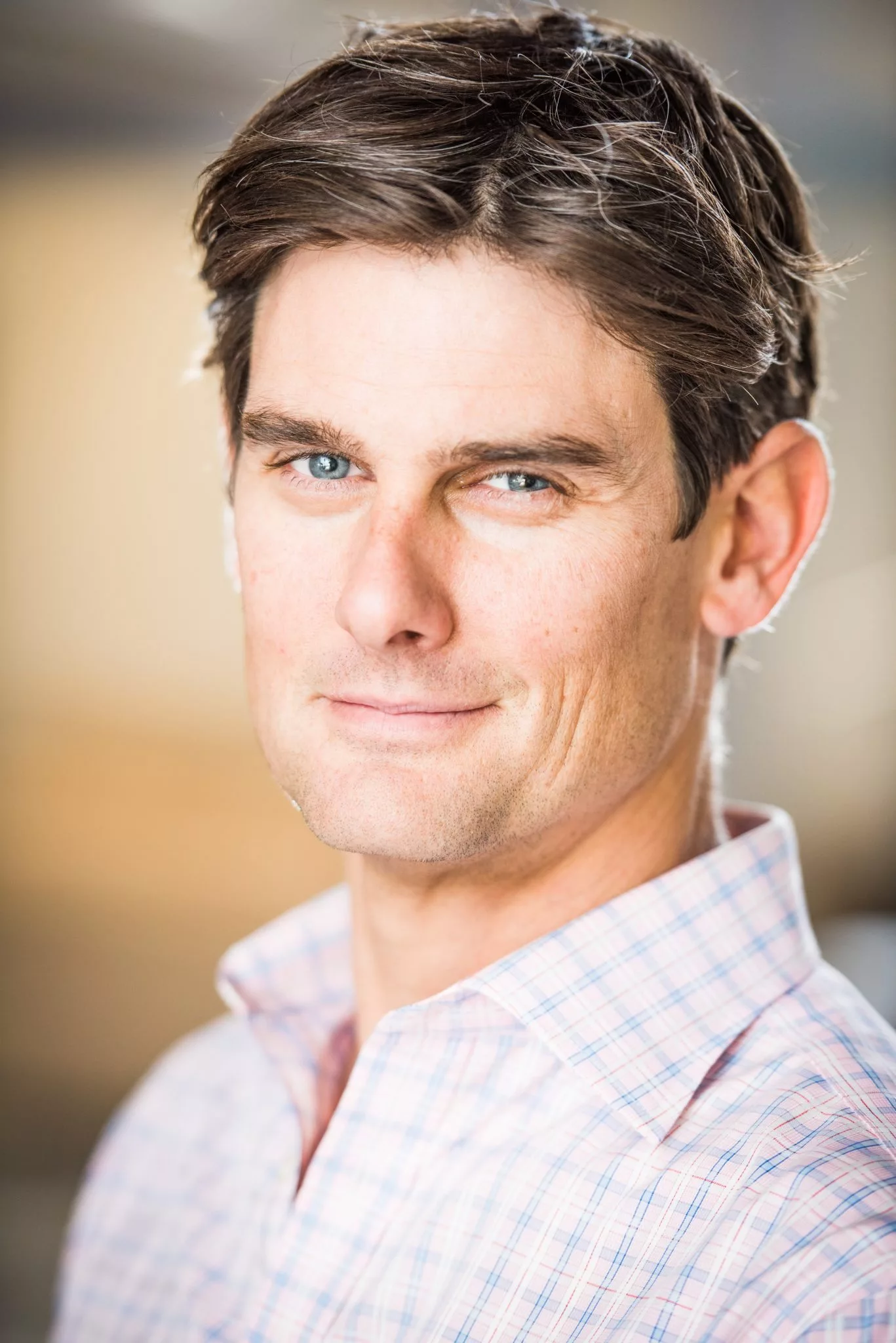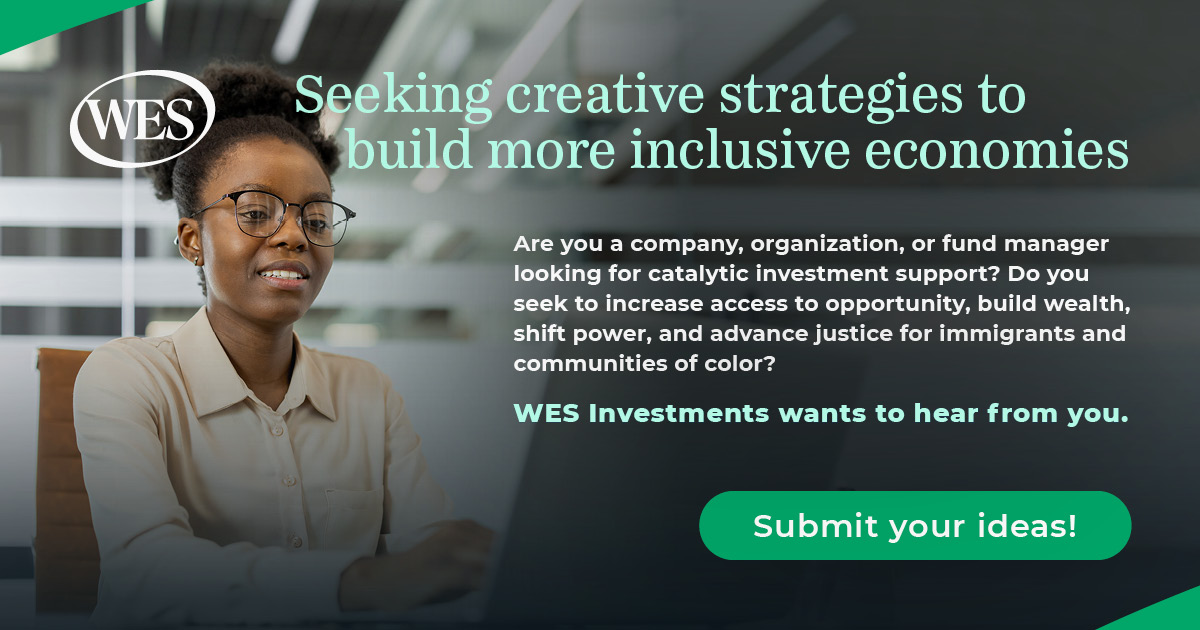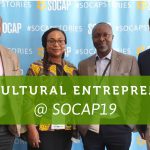Adam Lowry thinks big. When he and his former roommate founded Method in 2000, their goal was to revolutionize the cleaning products category. Within two years, the eco-friendly brand had landed a big-name designer to create its distinctive packaging and had convinced Target to carry its products nationwide. In 2012, the company was acquired by Ecover to form the world’s largest green cleaning company, and Lowry started considering his next act. A couple of years later, he teamed up with chemical engineer Neil Renninger to form Ripple Foods, which launched the first yellow-pea-based nondairy milk into US markets in 2016. But nondairy milk is just the beginning for Ripple, and for Lowry, who has dedicated his life to using business as a force for positive change.
Our co-founder Meghan French Dunbar recently spoke with Lowry — who will be presenting at the Conscious Company Global Leaders Forum in June — to hear more about thinking big, serial entrepreneurship, and the role of business in shaping our world.
Ripple Foods At A Glance
Location: Emeryville, CA
Founded: 2014
Structure: For-profit B Corp
Mission: “We envision a world where innovation and technology, responsibly applied, unleashes a wave of healthy eaters who choose plant-based foods because they are delicious above all else.”
Recognitions and awards: Fast Company World Changing Ideas 2017 Finalist, East Bay Innovation Award 2017
Interview
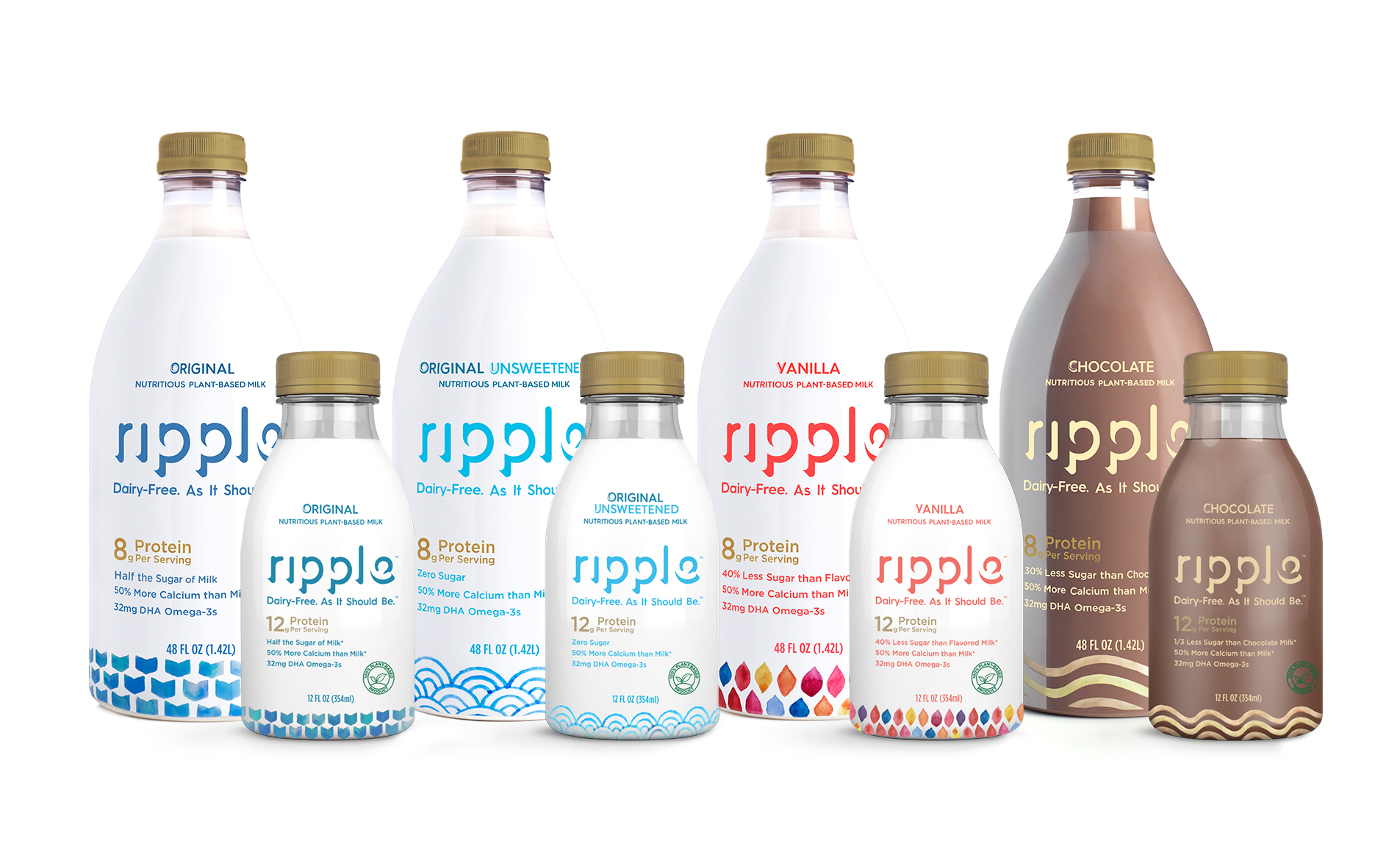 I’m interested in the inspiration for Ripple Foods. What is the main purpose of the company?
I’m interested in the inspiration for Ripple Foods. What is the main purpose of the company?
Adam Lowry: The inspiration for Ripple is really impact. I’m a big believer that, particularly in our toxic and broken political environment, business has got to lead the way toward benefits for people and for the planet, and there is no place you can have greater impact than our food system, broadly, and the food that we put in our bodies, specifically.
The mission of our company is to make plant-based foods delicious. We think there’s a huge opportunity with mainstream consumers who are starting to eat more plant-based. We want to see that trend continue. The best way for that to continue is for those foods to be nutritious, but also — most importantly — really, really delicious.
Why start another company after you’ve already had such success in the business world?
AL: For exactly the same reason. I think we need a lot more businesses that align environmental and social interest with the interest of the business so that as they grow, they multiply their positive impacts and displace businesses that aren’t doing those things as well. There comes a time when, even after you’ve had success with the business and you’ve done it for 16 years, it’s time to go and create another thing like that to try to create even greater impact.
When you measure things through impact, you’re constantly looking for, “How do I create more and more impact?” The Method business is doing amazing things now and will continue to do amazing things. My skill is building new businesses that align environmental and social interests with the interests of business from the ground up — and so that’s what I’m doing now.
What were the biggest lessons you learned during your time with Method that you’ve now brought to Ripple?
AL: One of the biggest things with a startup is, how do you balance aggressive growth with prudent growth? I’ve made that mistake on both ends, and it’s something I feel like I’ve got a better handle on with Ripple Foods. You never really know until you can see it in the rearview mirror. Knowing how to grow the business as effectively and aggressively as you can while still being smart so you don’t overextend yourself from any aspect — whether that’s capital or people or markets — is one of the biggest things I’m carrying forward from my Method experience.
Since Ecover acquired Method, do you feel the company has been able to scale and keep its values in the way you envisioned?
AL: I think Method is continuing to do amazing things post-acquisition, and in fact, some of the most incredible things from a sustainability standpoint happened after the business changed ownership. The shining example of that is that we started to insource manufacturing in 2013. We built a LEED Platinum-certified sustainable manufacturing facility, South Side Soapbox. It’s renewably powered, with a 750-kilowatt wind turbine on site. It’s water neutral. It’s almost landfill-free, and will be soon. And it’s got the largest rooftop greenhouse in the world, growing fresh, leafy greens in a food desert on its roof in the middle of the South Side of Chicago, where people desperately need green jobs.
That all happened after the business changed ownership, because we reached a certain scale where self-manufacturing made sense and we finally had a balance sheet with which we could make larger,
longer-term investments.
I should say that I never build businesses to sell them. That is a terrible way to do things. You’ve got to build a great business, and if shareholders are looking for liquidity and you have a great business, there are lots of different options for that.
The lens that I’ve always looked at business through is, “How do we continue to get better every day in the sustainability aspects of our business and in the products or services we’re providing?” If that’s the lens you use, then if a change of ownership presents itself, you look through that lens. First and foremost, will this help the business be better in terms of how it can grow and how it can deepen its sustainability mission? What is the impact on the individuals in the company and the stakeholders — our customers and our vendors? That sort of thing. The last thing is, does it make sense for the shareholders?
What’s your involvement with Method right now? What was the most challenging part of leaving your role there and moving on to Ripple?
AL: I have no formal involvement with Method. I still spend some time over there working with the CEO, a little bit with the board and a little bit with management, just on an informal basis.
I was very careful about the transition there because I care very deeply about that company and what we did and I want to continue to see Method do amazing things. When I decided to start Ripple Foods, I took a good couple of months to do the transition right from a full-time Method employee to not. I took time to make sure that the people, the processes — everything — was set up so that the value I added was institutionalized enough and passed on to other individuals so that Method could continue to do those things well. And it has, which is fantastic to see.
Talk to me about the workplace culture at Ripple. What are some of the best practices that you’re using to foster a healthy culture? How much emphasis do you put on the workplace culture piece?
AL: We put a lot of emphasis on culture. I co-authored a book about culture in 2011. It’s called “The Method Method,” and it was about our challenges, and ultimately triumphs, in creating a corporate culture that really fosters innovation.
I’m a big believer that when you’re a little guy in an industry of giants, which Method is and which Ripple Foods very much is, you have to win on innovation. And we live in a world where things can be copied so quickly that innovation is about speed and it’s about the quality of interactions you can create on an everyday basis within a business.
“The Method Method” is about the process we went through after the culture wasn’t functioning well and creating one that started to thrive. Ripple is less than a year old, at least in terms of how long our products have been on the market, but we have a very well-developed set of values, behaviors that support those values, and rituals to support and foster those behaviors and live those values. It’s not exactly the same as Method. Method has a quirky type of culture. At Ripple Foods, over half of our staff — our scientists and engineers — are doing original research on food. So the environment is a little bit different.
One thing I use as a measuring stick for how culture is doing: is there a difference between how people are at work and how they are at home? If they’re the same person at work they are at home, then I think your culture is going in the right direction. We’re still forming it. You’re always forming it, but I think we’re off to a really good start there.
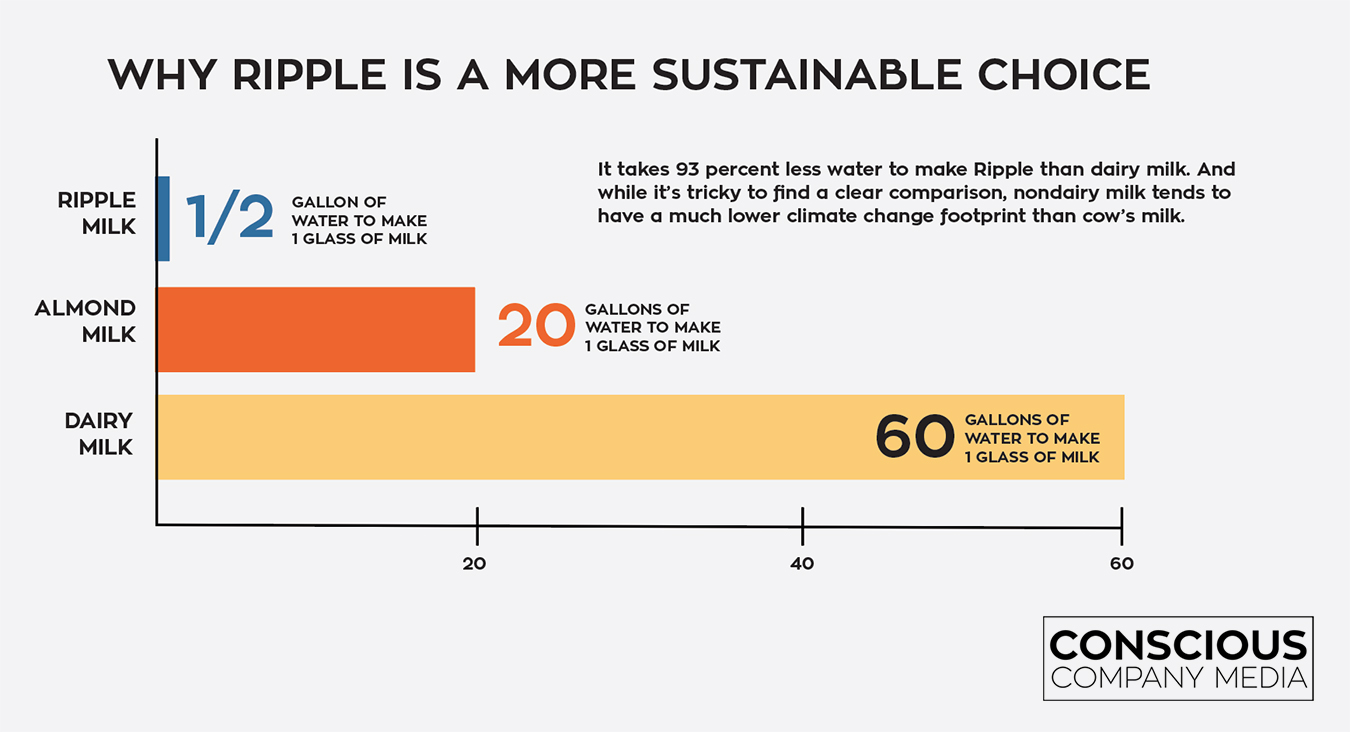 What are your values at Ripple Foods?
What are your values at Ripple Foods?
AL: Ours are all defined in terms of plant-growth metaphors. They’re things like “branch out” and “nourish” and “bloom.” A lot of those things have to do with how we treat each other and how we collaborate and innovate together, as well as how we work.
We’re big believers in working the way you work best. A lot of this stems from me and my co-founder Neil Renninger in terms of the ways we’ve found we work best. For example, I’ve never been able to get a work–life balance right, and I’ve given up. I’m more about work–life integration, and what that means is that a lot of times, I do my best work after 8:00 pm. After I’ve put my kids to bed, I get back into my office and do my best thinking — or early in the morning. Sometimes your kids have a soccer game or something you want to go to. We are very much results-oriented, and as long as you are driving results, work how you work best. If that means you have to take off in the middle of the day to go do something, knock yourself out, but it doesn’t abdicate the responsibility for driving great results. That ends up being something I think people really appreciate in a culture. We’re trying to help you do your best work rather than be prescriptive about how you do it.
What does “conscious leadership” mean to you? Do you have any best practices to help yourself become and embody conscious leadership?
AL: I don’t know about best practices, but I can opine. The first and most important thing is self-awareness. One of the most important things about being a social entrepreneur is being able to fully participate in the day-to-day of a business, but also have the skill to be observing it at the same time and course-correct and make sure you’re guiding people toward the mission. That’s a really hard thing to do for some people, to be able to play those dual roles of coach and player simultaneously.
Consistency is super important. Entrepreneurs are known for their passion, and that is a necessary ingredient, but it isn’t sufficient for running a social-minded organization effectively. You’ve got to have perspective as well as passion, and that means being consistent with the way you’re leading folks and how you’re guiding them toward your social mission. I could go on for hours on this topic but I’ll leave it at those two things.
What is the most important thing in your life right now?
AL: Family.
Full stop?
AL: Nothing will ever change that.
What is the largest challenge that you’re facing right now?
AL: We’re going big with Ripple Foods, and that means building process and innovation at big scale. That is a multiyear focus for our business. We’ve got a clear path to get there, but we haven’t done it yet. If, in two years, we are at scale with the types of innovations we’ve already brought to market, we’re going to have done something profound in the market, which is change the whole economics of providing high-quality, delicious plant-based foods. That will allow us to create a much, much larger audience for nutritious, healthy plant-based foods than there even is today, which is pretty big.
That’s a long-arc challenge inherent in the business we’ve created, but there are a lot of steps to it. That’s the biggest thing I wake up every day thinking about.
Did you have that same vision of a big, bold, scaled enterprise when you started Method, or is that idea a luxury after you’ve been able to scale your first business?
AL: No. I very much had that vision with Method. I think it’s pointless to make green products for green people. I’ll use a Method example. Four percent of cleaning products sold in the US are “green” cleaning products. That’s Method and all other green cleaning brands. So we’ve got work to do. If all we’re going to do is make the green cleaning product that the 4 percent buys, can you honestly look at yourself in the mirror and say that you’re creating change at scale? I don’t think so.
That’s why Method is beautiful, bright colors and sinuous shapes that look good on your countertop. That creates mainstream appeal for a product that happens to be more sustainable. In other words, it brings green to the mainstream, instead of trying to pull the mainstream towards green.
We’re doing the same thing at Ripple Foods. There is a huge movement of people moving off of dairy and onto plant-based or nondairy, not because they have dietary restrictions but because they want to live a healthier, more sustainable lifestyle. That’s a huge opportunity. But right now, if you drink cow’s milk and then you try almond milk, which is thin and chalky and watery and has one-eighth of the protein of milk, and you don’t have to drink that stuff, you’ll just switch back.
We’re making a product that a mainstream consumer can say, “Wow, I really love this plant-based alternative.” We’re starting with milk products; we’re going to move into lots of other products. And that’s important because you’re mainstreaming healthier and more sustainable eating. Our mission is to make plant-based foods delicious, because they aren’t right now. If they’re not delicious, they’re not going to scale. And if they’re not going to scale, then you don’t create the change you want.
That point of view it is at odds with a lot of people who are environmental or social entrepreneurs who really just want to do one thing with the audience that already exists, and I respect that. That’s not my perspective. We need to create massive change at scale, and that is only going to come through people really, really loving the products they’re using, whether those are household cleaning products or the milk they put on their breakfast cereal.
What role do you believe that businesses and business leaders have in terms of advocacy right now? Do they have a responsibility to get up and advocate for the causes that they care about in the current political climate, or would you say that they should remain plugging along, doing what they’re doing?
AL: I think that’s up to the individual business. My personal point of view is that to enter political arguments is a no-win situation right now because the political discourse is just so toxic. But I do think that there is such a thing as a civic identity, which is to say, “Listen, we believe in inclusion and that a more a diverse workforce is a more innovative workforce” — things like that. And standing up for those ideas is something I like to do. But the political environment is so toxic that if you get into any specific policy prescription, it gets ascribed to one side or the other, and then the other boycotts it and it’s just ridiculous.
My broader feedback on that is: go beat the businesses that are lining the pockets of the politicians who are doing nothing for us. When we beat them, then that entrenched special interest goes away. I believe that business leads and politicians follow, not the other way around.
What is giving you hope for the future?
AL: Demographics. This is a gross generalization, but I’m 42, and people who are younger than I am are growing up digitally native. They understand inherently that people have impacts on our Earth system, and that those impacts are things that in turn affect us, and that we should do business and we should conduct politics and we should just live our lives in ways that are consistent with those realities.
These are not people who believe lies and propaganda. It’s horrible what’s happening in the public sphere right now, but it’s not long for this world. The generations that will replace the political discourse in the next ten years — I don’t think there will be room for the propaganda and lies the way there is right now in political discourse. That gives me great hope.
Technology also gives me great hope. Today in America, there are more people working in the solar industry than there are in natural gas, coal, and oil combined. That’s already reality. If you want to install the cheapest kilowatt of generating capacity, you’re going to go solar or wind these days, and that’s with a policy environment that makes it harder, not easier, for those things. We’ve passed a tipping point on some things in the consumer psyche, in the energy sector and so on, that mean we’re never going back. I think some of what we’re experiencing in public discourse right now is the death throes of old ways of thinking.
Lessons Learned
Lowry’s top 3 lessons for social entrepreneurs
1. Surround yourself with people who are better than you, particularly in your areas of weakness. That’s something that a lot of people talk about; it’s almost cliché. But I don’t think a business can succeed without that.
2. Define early on what your business is really about. I’m not talking about a mission statement, necessarily. What is the business you’re really in and what is your unique proposition that is the reason your customers choose you? Have a crisp idea of that, because as a business grows and goes through challenges, you’re going to find yourself in positions where you need to go back to those first principles to remind yourself about what your core is so you can double down on those things.
3. You’ve got to be bold. Social entrepreneurs are trying to reinvent the purpose of business. In order to do that, we’ve got to take over business. Make no small plans. You’ve got to go for it, because at the end of the day, a tiny socially-focused business is great, but your impact is proportional to your scale. Go for it.
